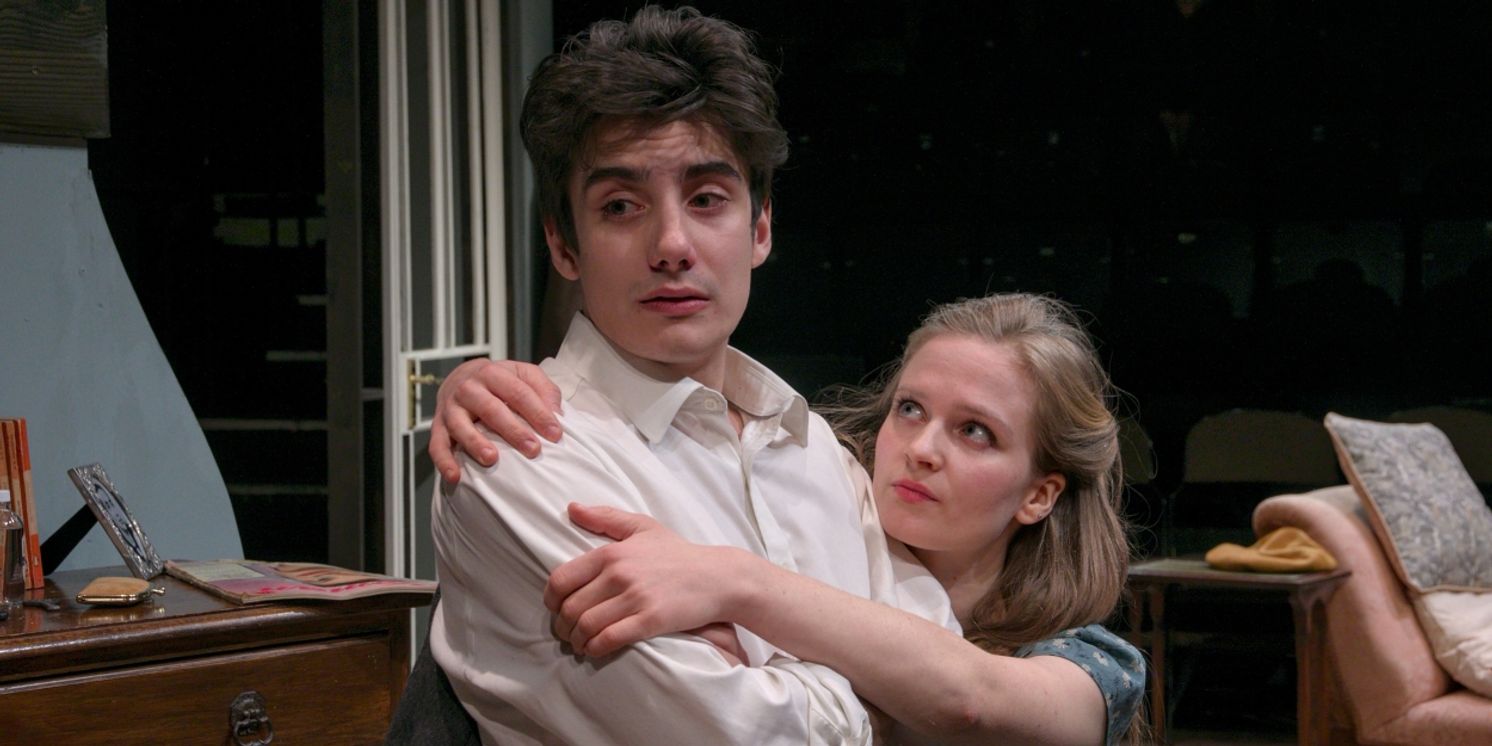Review: DON'T DESTROY ME, Arcola Theatre
Teenage trauma dominates dated play

 Even writers as prolific and eclectic as Emmy and BAFTA winner, Michael Hastings, probably best known for 1984's Tom and Viv, had to start somewhere and that place is Don't Destroy Me, his first play written before he was out of his teens. As with most adolescents, it might have been best to leave it behind with the haircut, the ear-ring and the tattoos.
Even writers as prolific and eclectic as Emmy and BAFTA winner, Michael Hastings, probably best known for 1984's Tom and Viv, had to start somewhere and that place is Don't Destroy Me, his first play written before he was out of his teens. As with most adolescents, it might have been best to leave it behind with the haircut, the ear-ring and the tattoos.
Perhaps that's unfair, as the talent that bloomed with such fecundity is nascently evident, but it's hard to get past the barely disguised narcissism and uncomplicated clarity that is a stage we all pass through. Too often we see the surface of the characters, the exclaiming of certainties, the howling at the moon - the Angry Young Man is too angry and too young for his own good here.
We're in the mid-50s, in South London where 15 year-old Sammy, a thinly disguised Hastings himself, joins his estranged boozy father, Leo, and his much younger, very bored wife, Shani in their rooms. Upstairs, the eccentric Mrs Pond, a fantasist, observes and comments on boarding house's tenants and her daughter, the bright and flirtatious Suki, does much the same, sans mental illness. Across the landing, wide-boy George has an eye for the ladies, which fits well with Shani's desire for attention but not George's low self-esteem. Landlady, Mrs Miller, is our salt-of-the-earth landlady, marshalling this freakshow on the landings.
.jpg?format=auto&width=1400)
The play is at its best evoking the grim austerity of those pre "Never Had It So Good" post-war years, London still strewn with bombsites and slums, work plentiful but tedious, men outnumbering women thereby giving them licence to misbehave (should they need it). Poor Sammy can see this bleak physical and psychological landscape stretching out in front of him and, as his enthusiasm of jazz signifies, is desperate to escape it.
The trouble is that his father has given up, his stepmother is too absorbed in her own problems and the Rabbi is useless. The kid is smart enough to see George for what he is, but not mature enough to be anything less than petrified and clumsy when the nubile Suki comes on to him. He ends up raging at the all and sundry and sulking and one can't help wanting to see what would surely be a better sequel.
Director, Tricia Thorns, teases some fine performances from the actors who continually have to navigate a very tricky set. Timothy O'Hara finds the sweet spot between the charm and the passive aggression that can set off both Sammy's distrust and Shani's libido. Eddie Boyce, on professional debut, carries the emotional weight of the play as its protagonist, but can't do much with his second act descent into sullen silence and shouty egoism. Natalie Barclay rocks a range of somewhat incongruous Brigitte Bardot outfits and she does capture Shani's caged bird like emotional incarceration and desire to do the right thing by her stepson.
Nell Williams manages to escape the types the rest of the cast are compelled to play as Suki, who comes across as a remarkably 21st century girl, keen on the prospect of unearned celebrity (she'd be a YouTube influencer today or appearing somewhere on Love Island), too young and immature to be sexy, but you see how she would fascinate and intimidate Sammy in equal measure. Perhaps even more than is the case for the lad, you hope that she does escape, but you fear that she won't.
Many plays of this vintage have much to offer today's audiences, their beats resonating with life as lived today, the delicious delight of hindsight unearthing the truths and misfires of how things were seen a generation or two in the past. I'm not sure there's much of that in this play that feels more like an academic exercise in exploring the roots of post-war British theatre (younger, more working class, more earnest than what had gone before).
It's never a wasted journey to see a revival that commits to its material - and this one does - but surely there are more influential, more accomplished, more engaging plays than this in the archive?
Don't Destroy Me at the Arcola Theatre until 3 February
Photo credit: Phil Gammon
Reader Reviews
Videos

